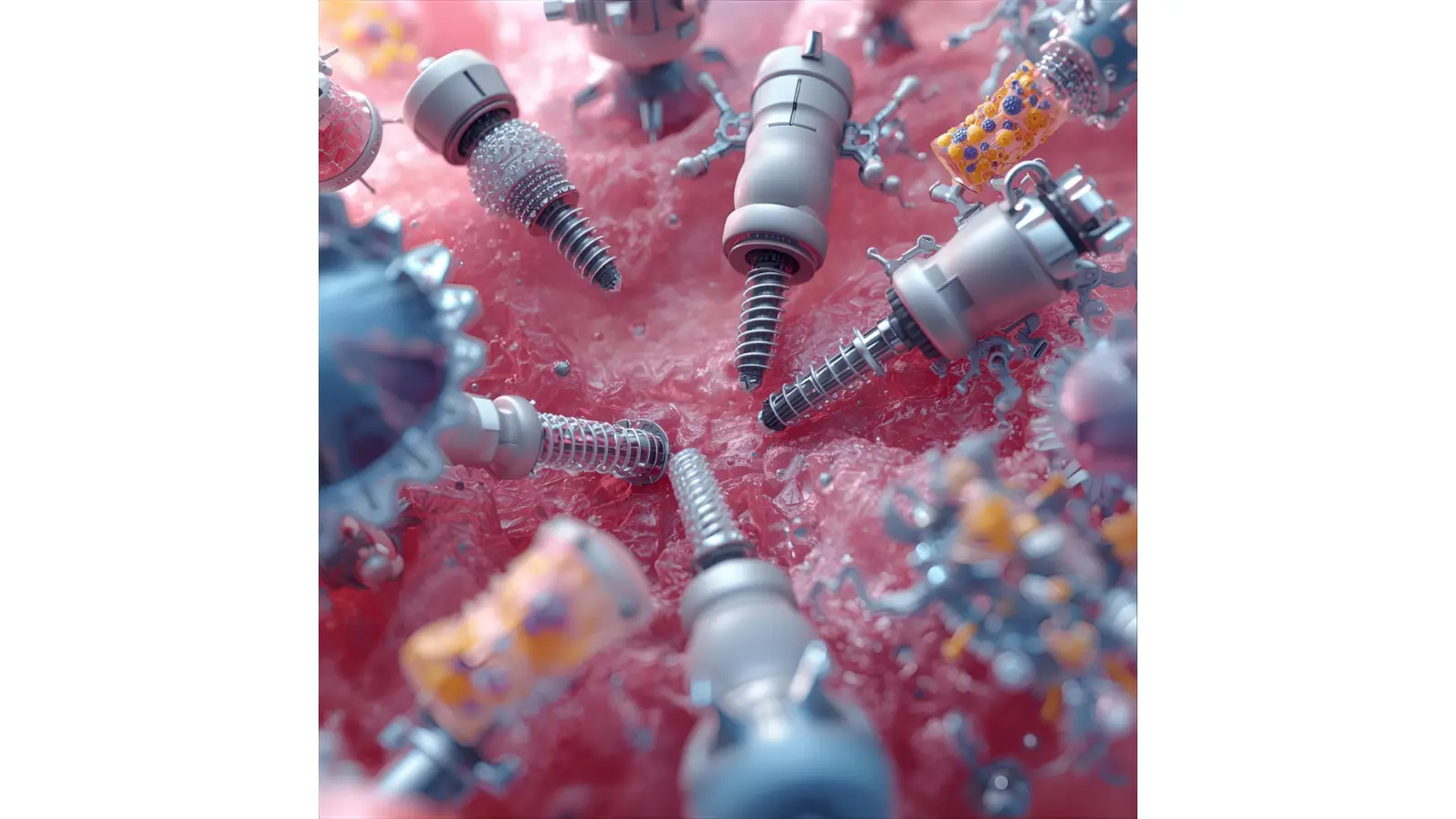
AI and Immune Profiling Reveal New Clues to Dental Implant Disease
The Hidden Challenge of Dental Implants
Dental implants have transformed modern dentistry, giving patients natural-looking and long-lasting solutions for missing teeth. Yet, not all implants succeed in the long term. A growing problem—peri-implantitis, an infection-driven inflammation around implants—affects up to one in four implant patients. Left untreated, it can cause bone loss, bleeding, and even implant failure.
For decades, dentists have struggled with unpredictable treatment results. Traditional clinical measures—like probing depth or bleeding—fail to reliably identify which patients are most at risk. This has left doctors without a solid way to grade risk or personalize treatments.
A Smarter Way to Classify Patients
Researchers from the University of Michigan and Michigan State University set out to change that. In a study published in Theranostics, they combined immune profiling with machine learning to better understand peri-implantitis.
Using a robust algorithm called FARDEEP, the team analyzed immune cells in tissue samples from patients undergoing regenerative surgery for peri-implantitis. They also tracked the oral microbiome—the mix of bacteria living around implants—before and after treatment.
What They Found: Three Risk Groups
The analysis revealed three distinct patient groups:
Low-risk patients: Showed strong immune responses with a higher ratio of protective macrophages (M1/M2) and fewer harmful B-cells. They also had elevated levels of key immune signaling molecules. Importantly, these patients were better at controlling dangerous bacteria after surgery.
High-risk patients: Had weaker immune defenses and were more likely to harbor harmful microbes such as Fusobacterium nucleatum and Prevotella intermedia. These pathogens quickly recolonized after surgery, leading to poorer outcomes.
Intermediate-risk patients: Fell somewhere in between.
This classification was more reliable than conventional markers like bleeding on probing or cytokine levels, which failed to predict outcomes.
Why It Matters
The study shows that a patient’s immune landscape, not just bacterial infection, plays a decisive role in whether implant treatments succeed. By combining AI with immune profiling, dentists may one day have a risk-grading system that helps:
Identify high-risk patients before surgery
Tailor follow-up care and maintenance schedules
Improve long-term implant survival rates
The Road Ahead
While promising, the study was limited to 24 patients. Larger clinical trials are needed to confirm whether immune-based stratification can be adopted widely in dental practice. Still, the results mark an exciting step toward precision dentistry, where treatments are guided by biology as much as by clinical symptoms.
Reference
Wang C-W, Hao Y, Di Gianfilippo R, et al. Machine learning-assisted immune profiling stratifies peri-implantitis patients with unique microbial colonization and clinical outcomes. Theranostics. 2021;11(14):6703-6716. doi:10.7150/thno.57775